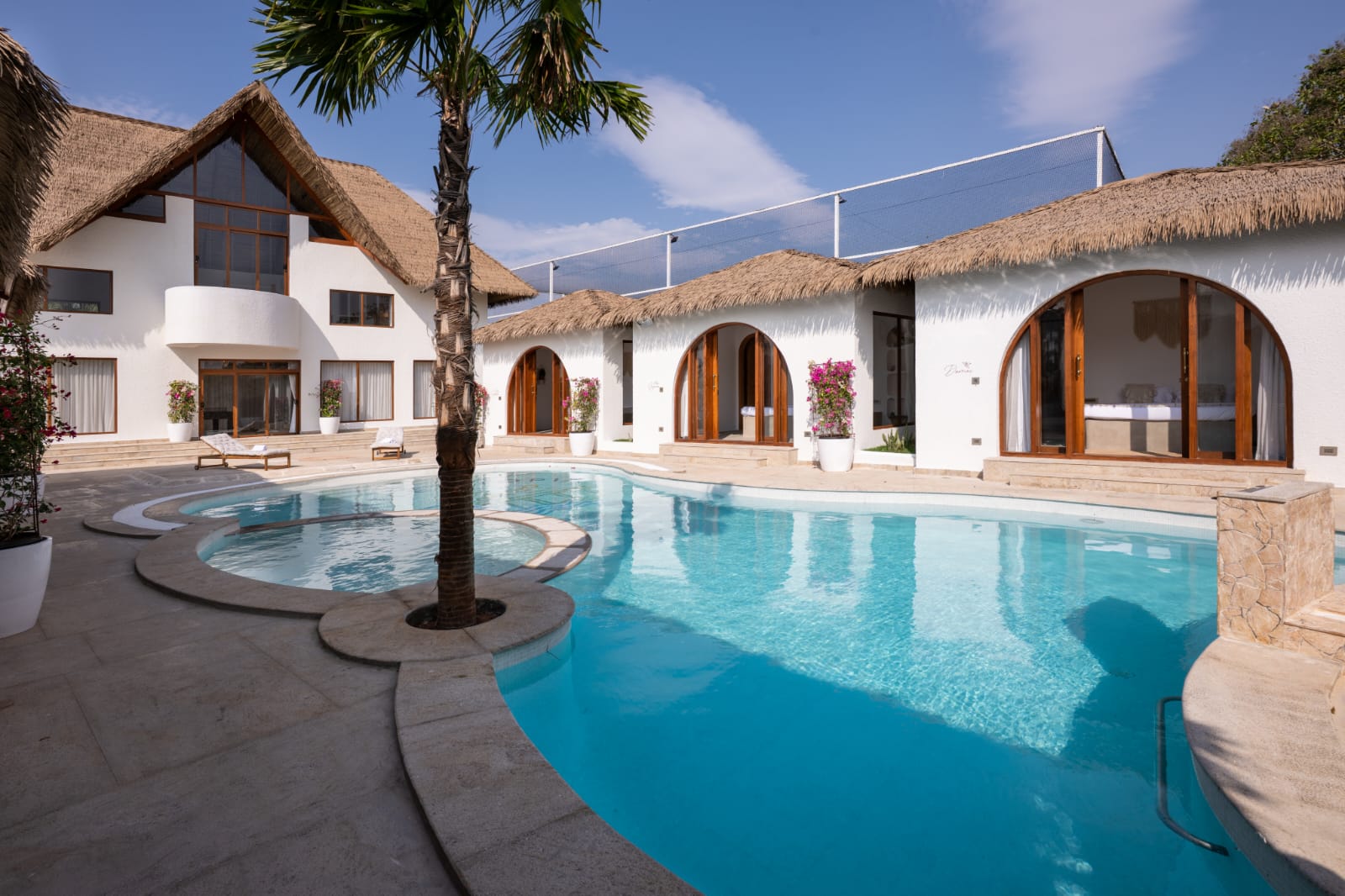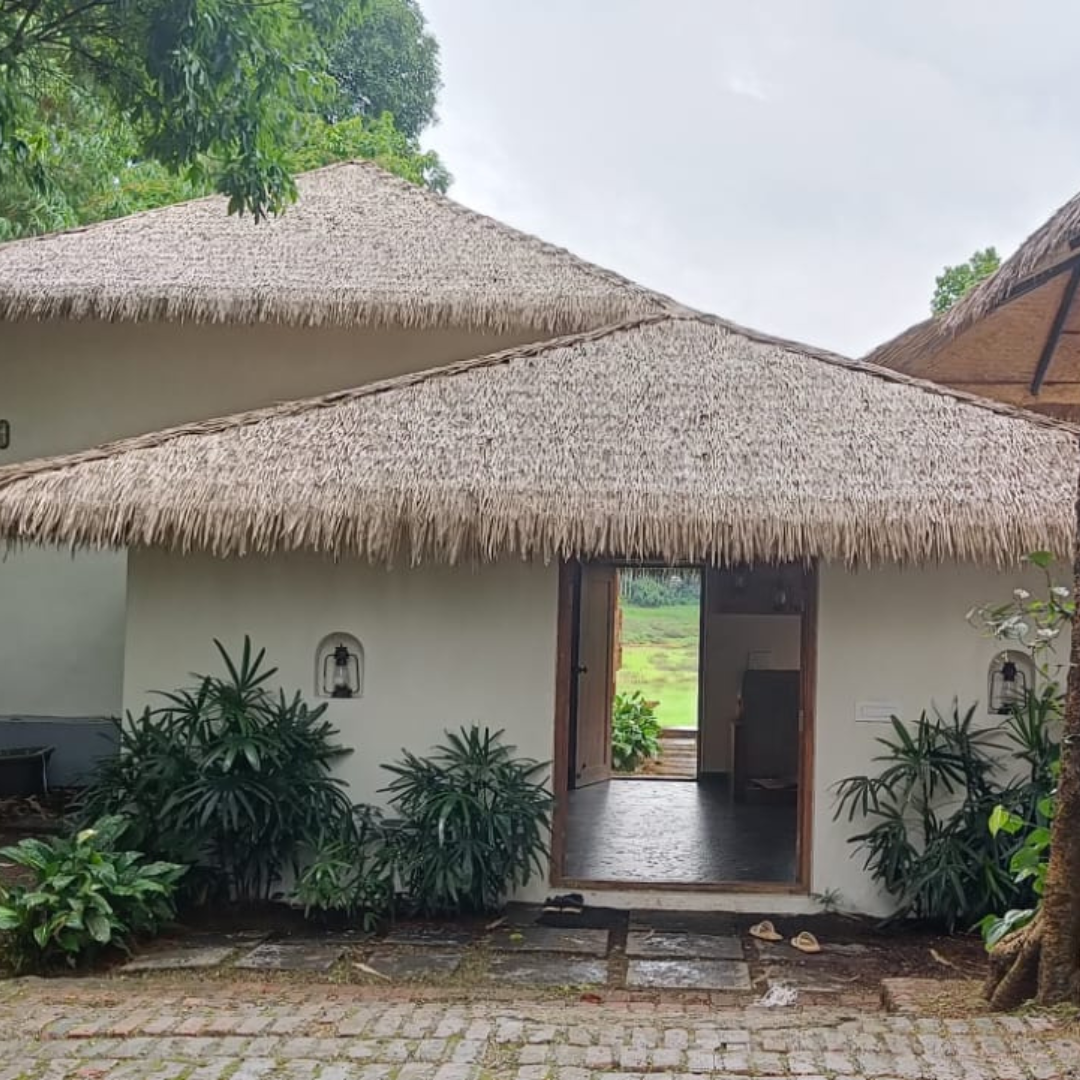Thatch roofing has an undeniable charm. Those thick, textured layers evoke images of cosy cottages and tropical paradises. But there’s a reason it’s not everywhere you look – traditional thatch, often made from straw or reeds, can be a high-maintenance nightmare. Enter artificial thatch, a modern take on this classic roofing material. It promises the same beautiful look with way less hassle, but is it really the eco-friendly hero it seems to be? Let’s peel back the layers and see what’s beneath.
Why artificial thatch Gets Points for Green
As someone who cares about the environment, I was immediately drawn to the idea of artificial thatch. Here’s why:
- Bye-Bye Deforestation: Traditional thatch often means harvesting natural resources like palm leaves, which can take a toll on forests. artificial thatch, on the other hand, can be made from recycled materials like polyethylene, giving those trees a break.
- Energy-Conscious Creation: Manufacturing artificial thatch roof might use less energy compared to the whole process of extracting, processing, and transporting natural thatch materials.
- Built to Last, Less Waste: artificial thatch is known for its impressive lifespan, lasting much longer than its natural counterpart. This translates to fewer roof replacements, which means less construction waste ends up in landfills. Plus, I’m all about saving money on roof repairs!
- Low Maintenance Magic: Forget about the constant upkeep natural thatch requires to keep rot and moss at bay. artificial thatch needs minimal maintenance, saving water and resources that could be used elsewhere.
- Cooler in the Summer, Warmer in the Winter: The insulating properties of artificial thatch can help regulate indoor temperatures. This potentially means less reliance on air conditioning and heating, which is good for the environment and your wallet.
- Recycle Repeat: Many artificial thatch materials are recyclable at the end of their lifespan. This closed-loop system minimises landfill waste and makes me feel good about giving that thatch a second life.
But Hold On, There’s a Flip Side
Now, before I completely crown artificial thatch the king of eco-friendly artificial roofing, there are a couple of things to consider:
- The Manufacturing Footprint: While potentially more efficient, creating artificial thatch still uses energy and resources. It’s important to choose manufacturers who prioritise sustainability throughout the process.
- The Recycling Question Mark: Recycling capabilities for artificial thatch can vary depending on where you live and the type of material used. Do your research to ensure there’s a proper way to dispose of thatch at the end of its days.
- Chemical Concerns: There have been some whispers about chemicals potentially leaching from artificial thatch. Regulations typically ensure minimal risk, but it’s worth keeping in mind.
The Verdict: It Depends
Overall, artificial thatch roof offers clear advantages in terms of reduced resource consumption, durability, and low maintenance. However, responsible sourcing, manufacturing practices, and end-of-life management are crucial for it to live up to its eco-friendly claims.
Here are some tips to navigate this and make an informed decision:
- Seek Out Sustainable Suppliers: Look for companies that use recycled materials and have eco-friendly manufacturing practices.
- Recycling Research: Before you commit, find out if there are proper recycling facilities in your area for your chosen artificial thatch material.
- Long-Term Thinking: The extended lifespan of artificial thatch translates to a lower environmental impact compared to frequently replaced natural thatch.
So, can artificial thatch be a sustainable roofing solution? The answer is yes, but with a little research and some smart choices on your part. With a beautiful thatched roof that’s kind to the planet, you can truly have your cake and eat it too! Contact KHW Solutions for any kind of synthetic thatch roofing.




